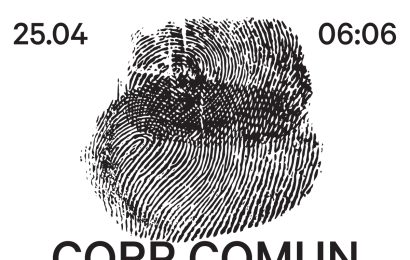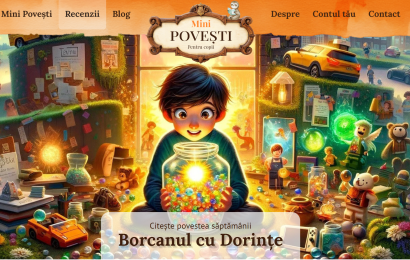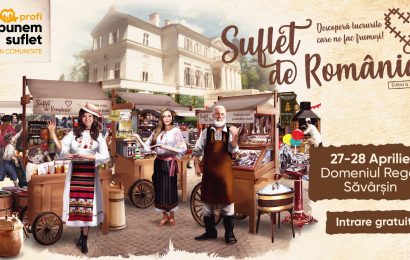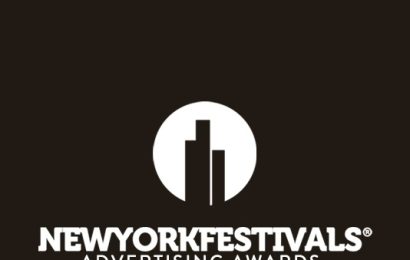Neal Davies: “Clients should hire agencies that can work with them, but also challenge them and help them get somewhere new and different”

Neal Davies recently joined Effie Worldwide as CEO after nearly 25 years in the marketing and advertising industry with experience as a client, as an agency executive and as a consultant to both clients and agencies. His client experience includes a long stint with Kodak (back when people used to put film in cameras!) and his agency assignments—at Simons Palmer in London, TBWA\Chiat\Day and McCann in New York and most recently as a founding partner of Naked Communications—include leading such iconic brands as Absolut Vodka, Sony PlayStation, Johnson & Johnson, Coca-Cola and American Express, winning the UK TV Commercial of the Year, a Grand Effie and an Emmy along the way.
AdH: What was your experience with the Romanian Effies?
Neal Davies: Fantastic experience, very energetic market. Would love to come back, would love to help the program grow.
AdH: Did you know something about the Romanian advertising prior to coming here?
N.D.: Very little. I’ve met Radu (e.n. Radu Florescu – CEO Centrade) and Felix (e.n. Felix Tataru – President at GMP Group, Global Senior Vice President at International Advertising Association) before coming here, but we’ve talked about other things. But I knew them and I knew they were very smart people and I had high expectations, based on knowing them. From the Effie perspective, I’ve knew that is a program that it has been going for years, gone through a few changes, but has grown, and I was very excited to be invited.
AdH: You’ve talked about the discussion between the judges that take place in other countries. Do you see that happening in Romania as well in a few years? How difficult do you think it would be to implement that process?
N.D.: I think that if we said for the Romanian Effie next year we are going to have discussions and then didn’t do anything until May next year and we walk in a room wondering what we are going to do, it wouldn’t work. What I think that we could do is if we set that as an objective we should think about what discussions we would have in the meantime, what training did we need to do, the opinion of the Effie committee – how would they like to see it implemented – , can we borrow someone from the local program or the Poland one or the Netherlands (where they have discussions) and wonder how can we use that model or learning? I am all about learning, so if it is something good that our neighbours are using, we have to see what is that and know more about it. And also, what are the questions that we should ask ourselves (ex: do we train moderators for each room?) We have lots of questions to ask and however you play it out, if Effie Romania would like me to help I would be happy to.
It’s not a huge change if we put the right things in place.
AdH: Do you believe that the learning process is essential for every community and industry? Or that in the daily crazy, busy life we tend to forget about learning each day and changing something, wanting to become better and more creative?
N.D.: Sometimes we become too focused on the task that we have, rather than looking at the bigger picture. The ability to think about the task we have at hand, it’s really important. It’s a talent that our industry should encourage at every level. Apart from that, we should look at the competition: who has done well in this category that I can learn from. Creatives ask all the time: how happens in the director’s world, in the movies that you like, what is new and different and cool. They are constantly learning and looking for inspiration and the rest of the advertising industry should be inspired by them and take their example.
AdH: Do you think that the client service people are not as oriented in learning or do you see that happening more towards the client’s side?
N.D.: My favorite quote that I used to give to the junior account people when I was training them was by Joe Frazier, the World heavy-weight champion in mid 70’s, “If you cheat on your road walk, on the cold, dark mornings, you will be found out under the fun, bright lights in the ring”. Meaning, if you are not prepared, someone is going to come and beat you to death in the show and everybody will see it, because you are under the lights of the ring. Advertising is like that: if you are not prepared, as a client service person, the minute you get in front of a client or a creative and you don’t know what to do or what’s next you are going to be exposed under the bright lights. So “do your road walk in the cold mornings”, learn, grow, get better and be prepared when you are actually in the spotlight. I think it’s a wonderful quote.
AdH: This year, you were also part of the Effies in China and Colombia. What differences did you notice about Romania and those countries, besides the cultural differences?
N.D.: Huge cultural differences. I went for the Galas, I was not taking part in the judging process (in China & Colombia), only in Romania I was also taking part in the judging. Here, in Romania, the judging time and the Gala are really close, unlike the rest of the countries mentioned before.
Everything that is new & exciting is in Asia. We’ve got the fantastic, passionate Latin approach of Colombia and then we’ve got the new economy of Romania. Three different arias, but their passion for Effie is the same. In all these countries people give up their time to judge, because they know there is a badge of pride in the industry. That there is their duty to make marketing better.
AdH: What about the level of advertising? Honestly.
N.D.: It’s so different. Culturally. I can safely say I’ve seen things in all three markets that I didn’t understand. But I have also seen things that I kind of loved.
Similar to the talk I did in Romania, I did one in China. A different content, with almost the same ideas. The education idea was less formulized at the time, but I was talking about what Effie could be next and what learnings we can get. The interesting thing is that you guys asked me what learnings you could get from North America, but I am less interested in what I can give you form North America. I am more interested in what you can teach us about mobile. Because you guys are so far ahead with phones, that I am listening to you. That was a really interesting play.
Colombia has an agency called Sancho BBDO and they are the most successful office in town, when it comes to the Effies. They are extremely creative, they do a fantastic work. I was impressed about one of the things they did for Mountain Dew, which is a skateboarders’ brand. The brief was: “make sure we stay relevant and we do not lose our skateboards heritage. How do we still appeal to those 12-13 year old boys? “ So, they designed the cap of the bottle to have a hexagonal hole in it, so that the skaters can use as a tool to tight the wheels. I thought that was fantastic.
China it was all about the mobile.
I think here there are different learnings all together. I had the sense that Romania has a less understanding of what it wants to be when it grows up. The Colombians kind of know what they want to do, the Chinese want to do everything, Romania is still finding its way. Which is fine. I actually admire the restraint.
I want to experience what Effie means in different markets. Share what I know.
AdH: We still have clients that are reluctant in giving the agency the necessary data and analytics in order for them to enter the cases. What would you say to that kind of client to convince it to be more open and help the agency enter the case?
N.D.: I think it’s about how we make the marketing better. How do we all improve. That comment that I mentioned that Sir Martin Sorrell made in London in the IAA Gala. That benefits clients as much as it benefits agencies. They get squeezed internally, they get their budgets cut and Effie has evidence of doing the right thing. It should be very important to clients. Some markets are really good at bringing a lot of clients to the table. What I would like to do is work with programs in any region and convince them to share their experience and how do they get clients to the table and how do they involve clients. And I much rather you guys learn from cases from Slovakia, Poland or Netherlands, from what your European partners are doing than rather from me shouting something from the other side of the Atlantic. What I am trying to do is to encourage the people to understand that we are a network and that we should talk with each other. That I believe is something that is very useful, both for clients and agencies.
The best way to convince a client is to convince him to judge. Because when they sit there and hear the discussion about the different cases, the next year they feel that they have to try and enter the competition. The judging done properly is our best advocate for the Effie. Because it is such a phenomenal experience.
Some clients have problems with sharing data, we know that, and when it comes to publishing them they are afraid. But as a judge you sign confidentiality agreements and non-disclosure forms and no papers are leaving the room, so it shouldn’t be any problem with that.
Another thing is that some of the work, before it gets to be judged it’s not even in market anymore. You are not giving away trade secrets.
I hope to change the discussions about Effie all the time: we are not an awards competition, our work is part of a bigger educational program. If clients understand that they might be less reluctant to offer and share information.
This year, there were voices in the industry that were disappointed about the fact that they considered some of the cases being exaggerated. Do you consider this to be possible or do you believe that it’s just a matter of knowing how to put the case on writing, on the right light and angle?
It’s difficult to say without looking at the specific cases. I believe that people may not the best storytellers of writers in actually explaining what they wanted to do. Or vice-versa. That can be one thing. Secondly, the feedback that I think any judge should give “that is bullshit! Stop writing your cases like that!” is a fantastic learning for the industry. Instead of a judge coming back and complaining, actually him giving the feedback is really clear: “I am a judge and I am here to catch your bullshit and I am scoring you low”. That is the nature of a judging process. Not all entries are going to be brilliant, not all cases are going to be well written, not everything is going to be worthy of a high score. Because if you are not sufficiently experienced to know this is bullshit, you shouldn’t be at that table. So, in my opinion, the person who was telling that was just doing his job, as far as I am concerned. They should be happy to have caught an accident.
The biggest thing that overall annoys me is that: our job is to sell a product to somebody else. Change somebody’s behavior in the favor of our product. That being said, the simple articulation of a message, even it’s a client briefing the agency, the agency briefing the creative, the creative briefing the production, the production building the executions and that being put in front of the consumer in a simple way that expect them to change their behavior, ultimately is about telling a simple story, in a clean way. That is our job. Writing a case in about telling a simple story, clearly. “What is the target?” – “A judge.”. “What’s his behavior? “ – “He wants to give us a low score.”, “How do I change that?” – “We need to tell him our story in a way that they respond to it”. What pisses me off is that people in our industry are forgetting about the target. We are in a communication’s industry. It’s inexcusable. The cases should be the most simple and most clear articulated pieces of information about how we did our job and created results that worked. And if you can’t write a case properly and it’s confusing the judge, and it exaggerates that much that is pissing the judge, then you don’t deserve to win.
AdH: When it comes to the organization process, how much can Effie Worldwide get involved in Effie Romania and in the process here, because you were talking earlier about trainings and seminars?
N.D.: First, a John F. Kennedy quote: “Ask not what Effie Worldwide can do for Effie Romania, but what Effie Romania can do for Effie Worldwide”. The point I made about mobile marketing is that there are learnings that can come from any individual market. What I want to do it works on many channels. First, create seminars, trainings, etc. that can be shared by different partner programs around the world. My job is to provide tools that should be beneficial to how people run those programs in their individual markets. That is the first role of Effie Worldwide.
The second thing is to learn and understand best practices, not just in case studies, but in terms of organization, from Effie Poland, Netherlands, Belgium, Romania, etc. and share it and be able to say “Effie Hong Kong is having a problem with X,Y and Z” and I would be able to say “funny thing is, you should be talking with the guys in Effie Romania because they are doing the same thing”. So, the second role of Effie Worldwide is coordination.
AdH: What clients you wished you would have worked for and you didn’t and why?
N.D.: I’ve never worked for a car brand or an airline. I think that would have been interesting.
AdH: What were the best things you have learnt from working in an agency?
N.D.: That understanding that the agency people are in the room because you bring something to the table that the client doesn’t have. You bring a different perspective. Clients should never hire an agency or agencies just to agree with them and eco what they say. Clients should hire agencies that can work with them, but also challenge them and help them get somewhere new and different. Once you have that relationship, you learn that advertising is actually about having an opinion, more than anything else and that this is what our industry boils down to. “I have an opinion and is based on that background or that research “.
The second thing is about the junior work jobs in advertising, especially in America (in New York when people leave the college they go either in advertising or the Wall Street). The kids who are 21 or 22 and working junior level jobs in advertising in America are completely pissed off because their friends that they were in school with are earning a lot more that they are, due to the fact that they are working in finance. But, if you love your job one day you will wake up and realize that you are actually paid quite well for something that you like doing. What I would used to say is that the first years in advertising are like the promise of Christianity: your reward is in the afterlife, not in the here and now. You have to put up with a few years of living on sin on Earth, but you will get rewarded afterwards.
Passion in your work is really important. You have to love what you do. I always thing that if I wouldn’t love what I do I wouldn’t do it. It’s also why I’ve changed careers in the overall marketing. 4 or 5 times actually. Not just changed jobs, but changed careers, markets, continents.






